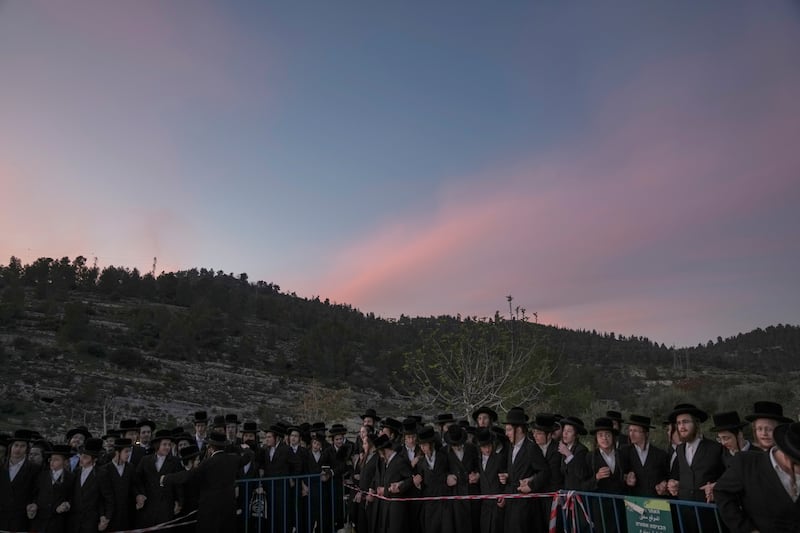The most memorable Passover seder I ever hosted was not with family and it was not in Israel. It didn’t even take place among Jews. Rather, it was a clandestine celebration in Bethlehem, involving half a dozen Christian Palestinian and international friends gathered around my table for meal and reflection — not just on the story of Exodus and what it meant for the ancient Hebrews but on the themes of freedom and redemption and what that meant for ourselves as individuals.
It was the spring of 2014. On the table was a seder plate and, for each guest, a haggadah, the Jewish text used for Passover seders that includes the Exodus story. There was also something less traditional alongside each plate: a supplementary haggadah I’d made myself that pulled together excerpts from Exodus and Psalms, as well as quotes from Khalil Gibran’s book “The Prophet” and the Derek Walcott poem “Love After Love.”
On Passover every year, Jews read the story of how God brought us out of slavery in Egypt and into freedom. We are commanded to think of the story as both our ancestors’ and our own. We’re not just reading a text about the ancient Hebrews making a journey — it is as though we are also sojourners making the transition from oppression to liberation.
So, that night in Bethlehem, after recounting the story of Exodus, we took an inner journey. We talked about our own personal Egypts and what it would take to free ourselves from those places of suffering that exist deep inside of us. We contemplated the stories we were telling ourselves and how well those narratives were serving us. How could they be tweaked to become gentler, more helpful?
Eight years later, I have my self-fashioned haggadah next to me as I write this and as I prepare, mentally, for the holiday. Leafing through the pages, I see the theme I wanted to share with my friends encapsulated in Khalil Gibran’s poem “On Joy & Sorrow”:
“Your joy is your sorrow unmasked./And the selfsame well from which your laughter rises was oftentimes filled with your tears.”
Joy and sorrow, Gibran argued, are “inseparable.” The same cup that holds our wine, he wrote, “was burned in the potter’s oven.”
The line reminds me of something I’ve heard from many religious Jews: “Nothing bad descends from above.” The trick is to find the blessing hidden in even the darkest moments or circumstances — therein lies joy.
The idea is not to turn away from the less desirable parts of ourselves and of life, a point driven home by Walcott’s poem, which extols the reader not to be a stranger to themselves but, rather, to welcome that stranger to the table. (Caring for the stranger is another theme of Passover and is the most-often repeated commandment in the Hebrew Bible. We think often of caring for the “foreigners” among us. But what about the foreigner that dwells within?)
Our discussion that night was largely about striking the balance between accepting ourselves and our circumstances while continuing to work to change them. This is a message that is woven into the story of Passover, too. In the haggadah, we are reminded that “The stone which the builders rejected hath become the chief cornerstone.”
What part of ourselves or our lives are we rejecting? And how are those aspects actually strengths? How can those realizations lead to self-acceptance and a journey out of self-alienation and suffering towards a freer and fuller life?
The lesson is something Jews and non-Jews alike can apply to themselves, personally. What do we want to be free of? What do we want to make peace with? What, on the inside, are we enslaved to? And how can we break free of those chains?
Passover is a powerful time to commit to change. It’s one of four Jewish new years contained within the Hebrew year (if you find this totally confusing, don’t worry, I do, too). Research shows that people are the most likely to make change when they have a blank slate, a phenomenon discussed in Katy Milkman’s book “How to Change: The Science of Getting from Where You Are to Where You Want To Be.”
So consider this Passover — this Jewish New Year during which we commemorate and celebrate our freedom from bondage — your blank slate, your chance to break free of whatever chains you. Your chance to commit yourself to change. Or maybe no change at all. Maybe just self-acceptance.


